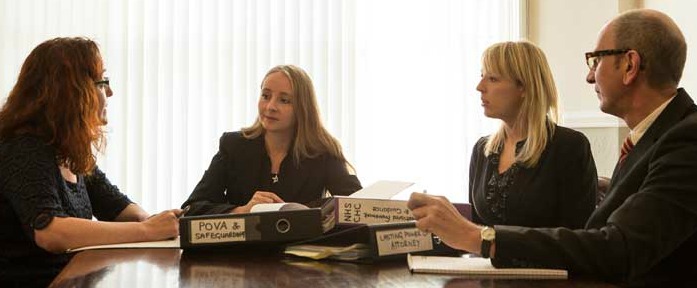Deputies, Double Recovery & Social Services Funding

Professional Deputies and their client’s Personal Injury settlements – Cate Searle, Head of Community Care Law, explores whether Professional Deputies should still be seeking health and social care funding for their vulnerable clients.
Recently we have been instructed by a number of Professional Deputies concerned at local authority proposals to charge for care, using their client’s Personal Injury (PI) settlement award. The issue is whether someone with a significant PI settlement, including an award for future care needs, is also entitled to state funded care, or whether this amounts to “double recovery”.
Two recent cases concerning social services financial assessments and personal injury trusts have ruled on this matter. Last month’s case of Tinsley (by his litigation friend and property and affairs deputy Jones) v Manchester City Council: [2016] EWHC 2855 (Admin) looked at charging for care, Personal Injury Trusts and double recovery regarding an individual who should have been entitled to free aftercare under section 117 Mental Health Act 1983. The Council argued that Mr Tinsley did not need free aftercare, because he could fund this himself from his PI damages which included a “generous amount” for future care. The Council said that a Deputy seeking to obtain state funded care was acting unlawfully and in breach of duty. According to Manchester City Council, allowing such double recovery would offend against the law, fairness and common sense.
The Court found against the Council, ruling that Mr Tinsley was entitled to s117 free aftercare despite his PI damages. The judgement observed that if Parliament had intended to change the statutory entitlement to aftercare, it could have done so under the Care Act 2014, an opportunity which had been missed.
The Tinsley case confirms that two groups of people with PI awards cannot ordinarily be compelled to use those awards to fund their care: those who are entitled to s117 aftercare; and those eligible for NHS Continuing Healthcare (R (on the application of Alyson Booker) v NHS Oldham [2010] EWHC 2593 (Admin)).
This judgment will be difficult to accept for cash-strapped public bodies. Local authorities are already struggling to fund adult social care and Council tax rises of 6% are proposed to plug large deficits.
But what about individuals with PI awards who don’t qualify for NHS CHC or s117 aftercare? Is a Deputy who hasn’t given a double recovery undertaking in a PI settlement at risk of the local authority refusing to provide social services care or funding for their vulnerable client?
Some reassurance might be found in the recent Local Government Ombudsman (LGO) report (14 009 949) which rejected St Helen’s Council’s attempt to make a service user fund the cost of care from their PI settlement of £2.85 million.
This is a pre Care Act case, so the LGO investigated the Council’s actions using the Charging for Residential Accommodation Guide (CRAG) rather than the Care & Support Statutory Guidance (C&SSG). The LGO found the Council had failed to follow the case law and government guidance that applied at the time (2012), which stated that Councils could only assess income generated from a PI settlement, not the capital itself.
However, St Helen’s rejected the Ombudsman’s decision and refused to carry out their recommendations. The Council argued that the High Court should consider the double recovery issue to establish a precedent, which would clarify the legal position for individuals without the benefit of NHS Continuing Healthcare or Section 117 funding. The Council is considering a second LGO report on the case.
Online comments give a glimpse of public reaction to such cases; readers of web forums commented “this man has the money to pay for his care; there isn’t enough money in the system” and “why should the tax payer pay for this when he has £3 million in the bank?”.
As Professional Deputies have a duty to secure their client’s finances and assets, we believe that as a matter of law, local authorities remain obliged to assess and provide care, without regard to any damages fund held by the Court of Protection. The future “battleground”, however, is likely be at the earlier, settlement stage of PI litigation. The extent to which an individual can rely on local authority funding for care and support is likely to be debated when wrangling over the level of the Claimant’s award.
Rachel Burley-Stower at Martin Searle Solicitors is currently running a number of double recovery cases and has secured substantial care packages, funded by the Local Authority, for individuals with damages awards.
Until we receive clarity on this point from the higher courts, Deputies should continue to challenge community care law decisions by local authorities that claim that the Care Act 2014 allows them to charge against PI settlements.
If you require further information about social services financial assessments and double recovery, please contact our community care law team on 01273 609911, or email info@ms-solicitors.co.uk to find out more.


